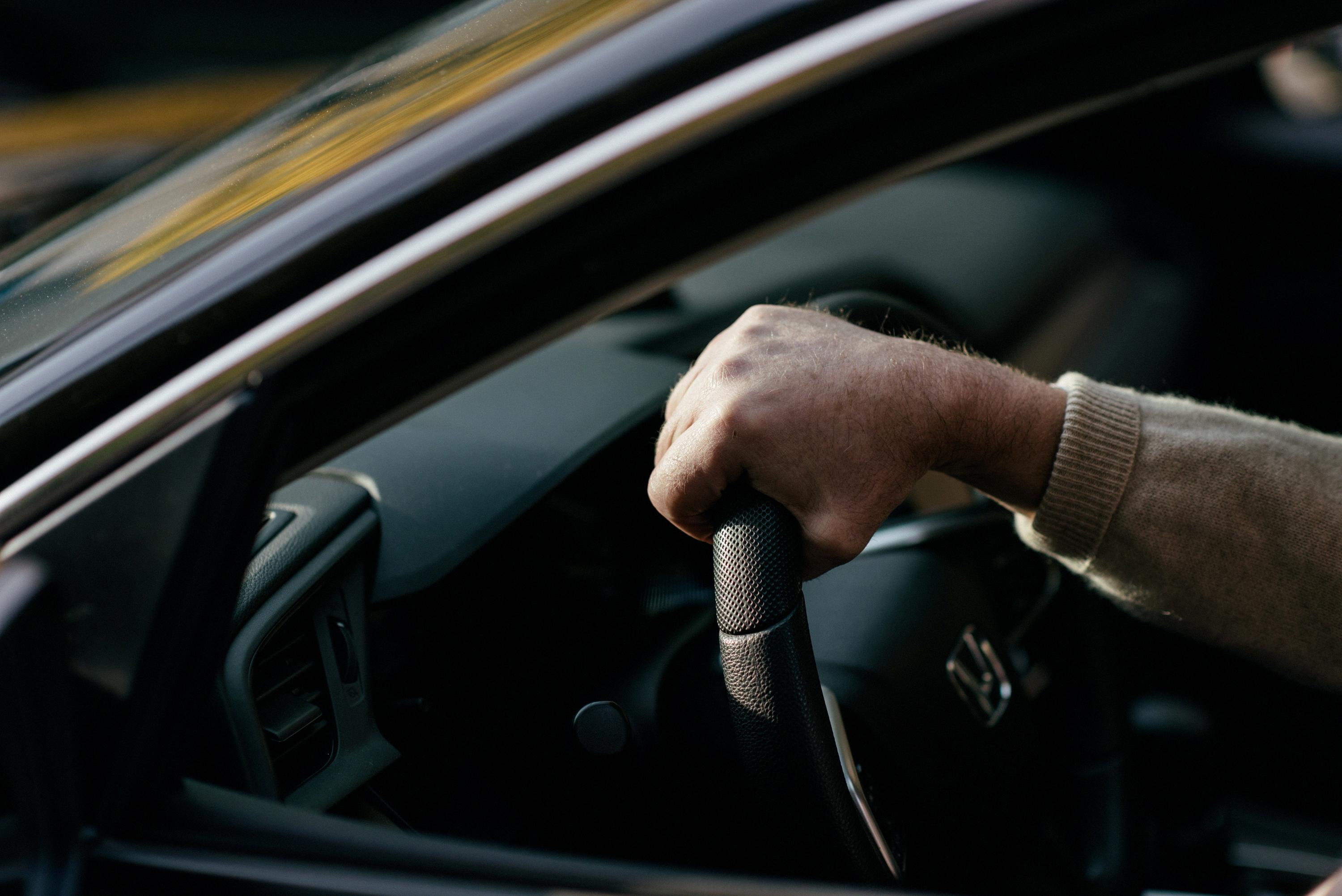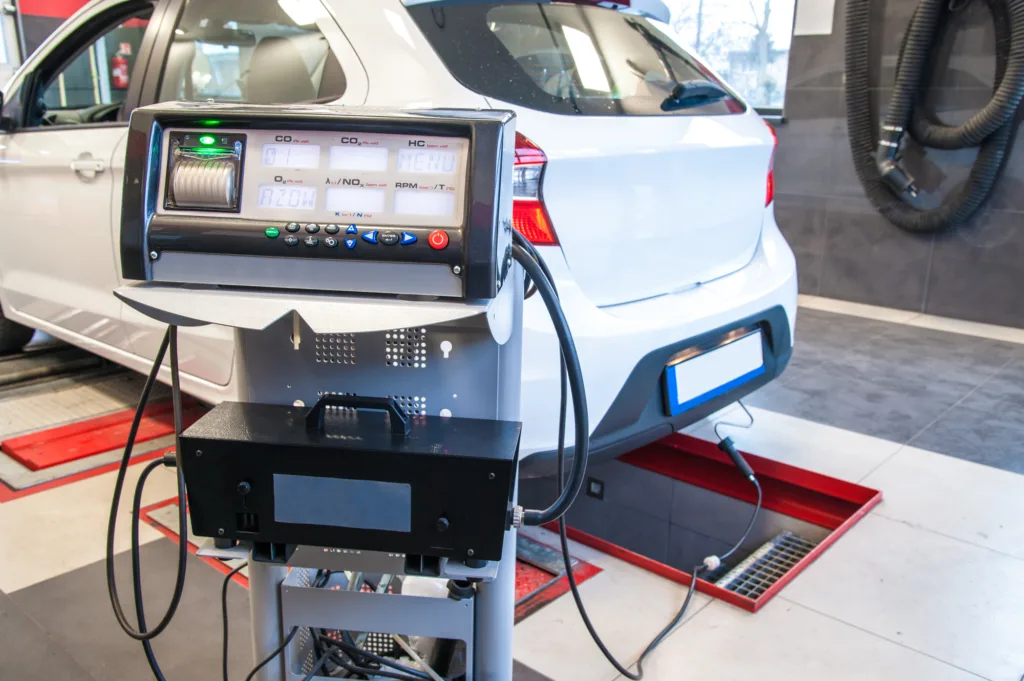Smog check, also known as emissions testing, is a process that checks the amount of pollutants that are being emitted by a vehicle. This is important in maintaining air quality and reducing the impact of vehicle emissions on the environment. The smog check process can take anywhere from 20 minutes to an hour, depending on the type of vehicle and the specific tests that need to be performed.
During a smog check, the vehicle is hooked up to a machine that measures the emissions that are being produced. The machine checks for various pollutants, including carbon monoxide, nitrogen oxides, and particulate matter. In addition to measuring emissions, the technician will also inspect the vehicle’s exhaust system for leaks or other issues that may be contributing to high emissions.
The length of a smog check can vary depending on the type of vehicle being inspected. For example, newer vehicles with clean emissions records may only require a quick inspection that can be completed in as litle as 20 minutes. Older vehicles or those with a history of emissions problems may require more extensive testing, which can take up to an hour or more.
It’s important to note that smog check requirements vary by state, and even by county within a state. In some areas, vehicles may be required to undergo regular smog checks every year or every two years, while in other areas, smog checks may only be required for certain types of vehicles or in certain circumstances.
In addition to the time required for the smog check itself, there may be wait times involved as well. Some inspection stations may require appointments, while others operate on a first-come, first-served basis. It’s always a good idea to check with your local smog check station ahead of time to find out their specific procedures and any wait times that may be involved.
A smog check typically takes anywhere from 20 minutes to an hour, depending on the type of vehicle and the specific tests that need to be performed. It’s important to stay up-to-date on smog check requirements in your area, and to plan ahead for any wait times or appointments that may be required. By doing so, you can help to ensure that your vehicle is operating as cleanly and efficiently as possible, and that you’re doing your part to protect the environment.
Average Length of Time for a New York State Car Inspection
When it comes to getting a car inspection in New York State, many people wonder how long the process will take. Fortunately, a car inspection typically only takes between 30 minutes to an hour. This includes the time it takes for the inspector to examine your vehicle and complete the necessary paperwork.
During the inspection, the mechanic will check a variety of systems and components to ensure that your car is safe to drive on the road. This includes the brakes, suspension, steering, lights, tires, and emissions. If any issues are found during the inspection, you will be notified and given a list of recommended repairs.
It’s important to note that you cannot legally drive your car without a valid inspection sticker. Therefore, it’s recommended that you schedule an appointment ahead of time to ensure that you can get your vehicle inspected as soon as possible. This can help alleviate the stress of tryig to get your car inspected at the last minute.
A NY state car inspection typically takes between 30 minutes to an hour. It’s recommended that you schedule an appointment ahead of time to ensure that you can get your vehicle inspected in a timely manner.

Source: repairpal.com
Failing a Car Inspection in New York
When it comes to getting your car inspected in NY, there are several things that can cause it to fail. Here is a comprehensive list of items that will fail a car inspection in NY:
1. Brakes: The inspector will check the brakes thoroughly, whch may involve removing at least one front wheel. If the brakes are worn out or not functioning properly, your car will fail the inspection.
2. Seatbelts: The inspector will check to make sure that the seatbelts are functioning properly and securely anchored. If they are not, your car will fail the inspection.
3. Lights: All lights on the car, including headlights, brake lights, turn signals, and hazard lights, will be checked. If any of these lights are not working, your car will fail the inspection.
4. Windshield and auto glass: The windshield and other auto glass will be inspected for cracks or damage. Any cracks or damage that obstructs the driver’s view will cause your car to fail the inspection.
5. Mirrors: The mirrors on the car, including the rearview and side mirrors, will be checked for proper placement and functionality. If any of the mirrors are not functioning properly, your car will fail the inspection.
6. Steering and suspension components: The steering and suspension components will be inspected for wear and tear. If any of these components are worn out or not functioning properly, your car will fail the inspection.
7. Tires: The tires will be inspected for wear, proper inflation, and any damage. If the tires are worn out, not properly inflated, or damaged, your car will fail the inspection.
8. Horn: The horn will be tested to make sure it is functioning properly. If the horn does not work, your car will fail the inspection.
It is important to note that these are not the only things that can cause your car to fail an inspection. However, by ensuring that your car is in good condition and that these items are functioning properly, you can increase your chances of passing the inspection.
Driving With An Expired Inspection Sticker In NY: How Long Is Allowed?
In New York, it is important to keep your vehicle up-to-date with inspections. If your vehicle’s inspection sticker has expired, you may be wondering how long you can drive without getting a new one. According to New York State law, you can receive a fine if the inspection sticker on your vehicle has been expired for more than 60 days.
The fine for driving with an expired inspection sticker can range from $25 to $50, so it is important to stay on top of your vehicle’s inspections to avoid any potential penalties. It is also worth noting that driving with an expired inspection sticker can result in your vehicle being impounded, so it is best to get your vehicle inspected as soon as possible to avoid any further complications.
Driving with an expired inspection sticker in New York can result in a fine of $25 to $50 if the sticker has been expired for more than 60 days. It is important to keep your vehicle up-to-date with inspections to avoid any potential penalties or impoundment of your vehicle.
Cost of Emissions Testing in New York
In New York State, the fee for an emissions test is $27. This fee is standard across all regions and is payable at the time of the inspection. It is important to note that vehicles that fail the initial emissions test may require an additional test, which can incur an additional fee. Additionally, some counties in New York State may require additional emissions testing beyond the standard inspection. It is recommended that vehicle owners check with their local Department of Motor Vehicles or inspection station for specific information regarding emissions testing requirements and fees.

Conclusion
The Smog Check is an important requirement for vehicles in California and many other states. It helps to reduce harmful emissions and improve air quality. By ensuring that our vehicles are properly maintained and inspected, we can protect our health and the environment. It is important to remember to get your vehicle tested every two years and to keep the receipt of your emissions inspection sticker as proof. With a small fee and a little bit of time, we can all do our part to keep our air clean and healthy for generations to come.
